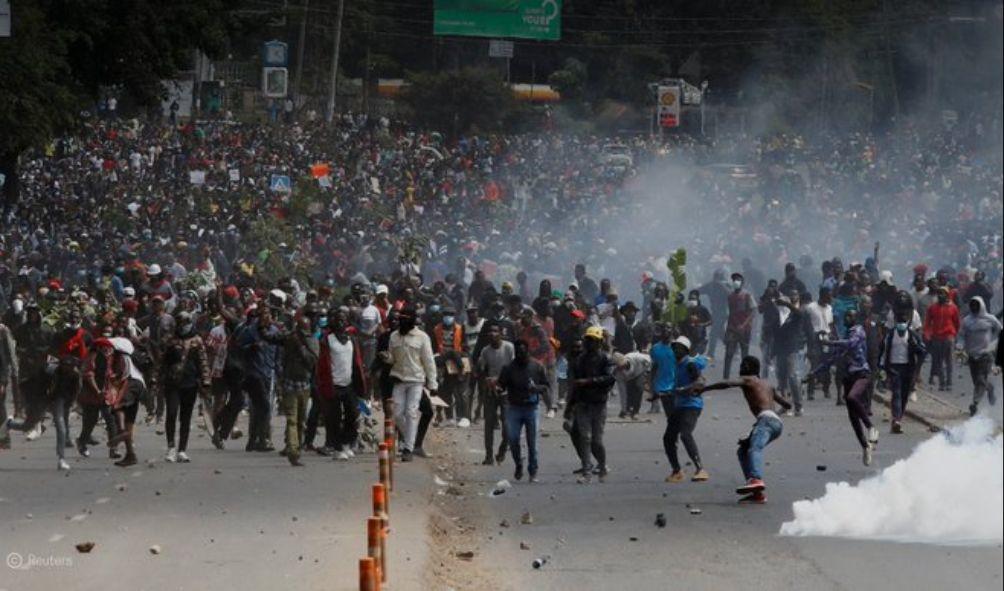Explainer: What You Need to Know About Bill that Seeks to Regulate Protests
The government will gain extensive authority over public demonstrations if a new bill becomes law.
The Assembly and Demonstrations Bill, 2024, introduced by Mbeere North MP Geoffrey Ruku, details the guidelines for holding assemblies to ensure the protection of public property and human lives.
Under the proposed legislation, anyone intending to organize a protest must inform authorities within a 3 to 14-day window before the event.
The notice must include the organizer’s complete name, the physical location of the protest, the planned route, and the proposed date. Organizers may also request police presence to help maintain order during the protest.
ALSO READ:
- Ruto Holds Virtual Meeting With Uhuru, 3 Other Ex-African Presidents
- Kenya: Rape Suspect Caught Stealing Prosecutor’s Phone at Kibera Court
- Trans Nzoia Governor George Natembeya Faces Scrutiny Over Suspicious Withdrawal of Millions
- Murkomen Under Fire Over Remarks on Gen Z Mental Health, Forced to Apologize
- Donald Trump Appoints Daughter’s Father-in-Law, Massad Boulos, as Senior Advisor for Africa
Police will inform the organizer if the chosen location is already reserved by another group that had previously notified authorities.
If the assembly receives approval, the organizer must be present throughout the event to help law enforcement maintain peace and order.
Under the new proposal, a police officer with a rank higher than an inspector has the authority to deny permission for a protest if it contravenes the law or poses an imminent risk to public safety.
The bill suggests that anyone involved in an unauthorized assembly could face up to one year in prison.
Police are required to maintain a public register of all protest notices, and any Kenyan citizen has the right to inspect this register during office hours.
The bill also empowers authorities to impose conditions on a protest if it is deemed a threat to public safety and property.
If such conditions are imposed, organizers have the right to appeal to the High Court within three days of receiving the notice to have the regulation overturned.
Protest Conduct
As per the bill, organizers must appoint marshals to help manage protest participants and ensure peace.
Protesters are prohibited from carrying placards, banners, or chanting slogans that incite hatred based on culture, race, gender, language, or religion.
Participants are also forbidden from engaging in violent behavior, carrying weapons, or wearing masks that conceal their identity.
They are also not allowed to wear any attire that resembles that of the police or Kenya Defence Forces (KDF).
If any property is damaged during a protest, all participants will be held accountable.
Police Powers
During protests, police will be legally empowered to:
a) Prevent protesters from straying from the designated route as outlined in the notice.
b) Direct protesters along a route that ensures traffic flow and keeps rival groups apart while protecting public property.
c) Order any individual attempting to disrupt the protest to stay away.
d) Take necessary measures to protect people and property during the demonstration.
Violators of the bill’s provisions may face fines of up to Ksh.100,000 or imprisonment for up to one year.
The bill is currently undergoing public consultation before being reviewed by the National Assembly.
Explainer: What You Need to Know About Bill that Seeks to Regulate Protests
